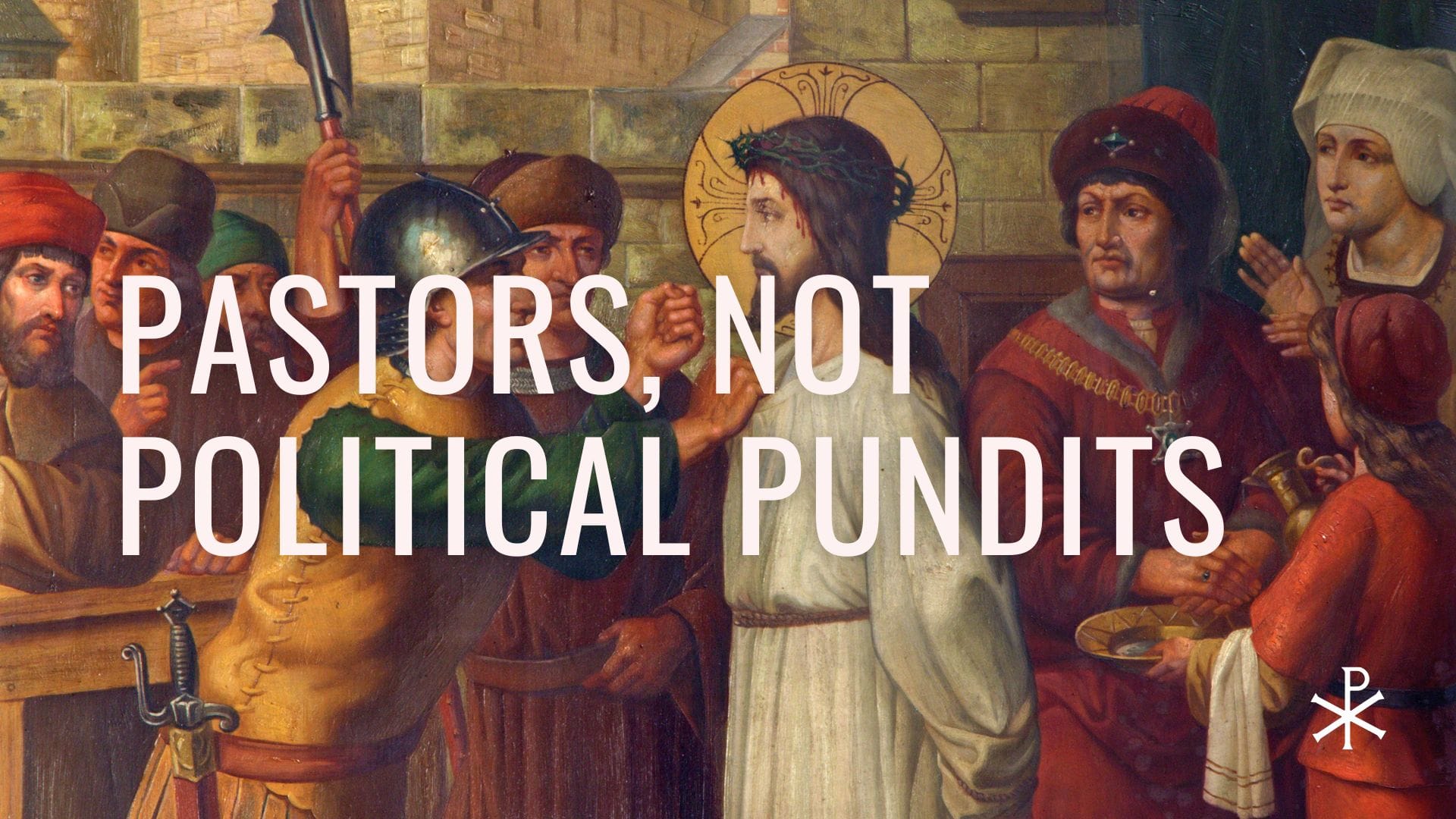Pastors, Not Political Pundits
Jesus conquered an empire by keeping His focus on His mission. As His ministers, we're called to do the same.

One of the most stunning features of Jesus' ministry isn't just what He did or declared—it's what He chose not to do. Jesus remained focused on His mission, refusing to be drawn into the political fray of His time.
Satan tempted Him with global political power, offering authority over all kingdoms in exchange for worship. Jesus rejected this outright, affirming God's ultimate rule over all earthly kingdoms and choosing instead to serve and worship Him alone (Luke 4:5-8). Moreover, Jesus consistently refused attempts to drag Him into divisive political debates, masterfully navigating around these traps (Matthew 22:15-22). He even declined the people's attempts to crown Him king (John 6:15), knowing His kingdom was not of this world.
Notably, the New Testament doesn't record any lengthy comment from Jesus regarding the pressing political issues of His day—a remarkable omission, given the charged atmosphere under Roman rule. Yet, within centuries of His death and resurrection, the very empire that had once oppressed Christians not only legalized but embraced Christianity. How did Jesus conquer an empire without becoming political? It's a question worth pondering, especially in an age when so many expect pastors to play a partisan role.
I sometimes start my mornings with news and political commentary over coffee with my wife. We hear the back-and-forth and sometimes feel conflicted. Later in the day, I often turn to social media or websites to hear more perspectives. Occasionally, I'll see pastors engaging passionately in these debates, and I might even feel tempted to weigh in myself. After all, I have strong opinions and a degree in political science! I'm anything but indifferent. Even so, I usually decide against it. Why? There are several reasons.
First, I consider how my words might unnecessarily alienate some in my congregation or community. Might I lose the opportunity to engage someone meaningfully with the most important message, the gospel of Jesus Christ, over one of infinitely lesser importance? Would someone annoyed by my over-shared political opinions feel comfortable coming to me for pastoral care? Maybe, but perhaps not. And what about the impact on the church's reputation? Would it become known more for political activism than for proclaiming the gospel? At the very least, this all gives me pause.
Ultimately, though, I reflect on Jesus. He welcomed a tax collector, Levi, who collaborated with the Romans, and a zealot, Simon, who was vehemently opposed to the empire. Both ends of the political spectrum found a place in His circle. If Jesus built bridges, why would I risk erecting barriers?
Moreover, I remind myself of my primary calling. After two decades in ministry, I recognize my limitations. I'm not an expert in public policy, nor do I have a biblical mandate to weigh in on every issue. What would I gain by doing so? More importantly, what might I lose?
I'm a pastor, not a political pundit. While I deeply appreciate the work of those called to political service, my role is different. A former professor of mine now helps shape international policy, and I admire his work—it's his calling, but it's not mine. Similarly, I have friends within my congregation who serve as political leaders and activists in our community. I appreciate their efforts and hope to equip them biblically for their work. We need them - badly.
However, in our polarized culture, we need pastors who are focused on preaching Christ, not political activism (important as that is). Our brokenness and division run deeper than political solutions can address—they're spiritual. The gospel, not policy, is the ultimate remedy for individuals and our nation. It reconciles us to God and one another. It provides the basis for and produces the individual and communal righteousness that exalts a nation (Proverbs 14:34). We must preach it with renewed focus, clarity, and zeal.
Does this mean that pastors should ignore preaching scripture's moral imperatives? Absolutely not. Jesus declared that all authority in heaven and on earth is His and commissioned us to make disciples of all nations, teaching them to obey everything He commanded (Matthew 28:18-20). This involves preaching truths with direct political implications boldly and unequivocally.
For instance, looking to scripture, faithful pastors unashamedly preach the sanctity of human life, against racism and sexism, advocate for the implementation of biblical principles of justice—such as an independent judiciary that shows no favoritism to the rich or poor (Leviticus 19:15)—and declare that workers are worthy of fair wages (1 Timothy 5:18). These are a scant few of innumerable examples.
Yet, while we faithfully preach and teach these scriptural imperatives, the political strategizing and implementation of public policy belong to others called to engage in civil life in those ways, not pastors. Our focus remains on preaching Christ and forming disciples by shepherding the flock of God, leaving the vitally important details of politics to those gifted and called to work in those fields.
Ironically, pastors become more politically potent by staying focused on preaching the gospel and making obedient disciples. When hearts are captivated by Christ as King, they will naturally seek righteous leaders and policies. Christians pervasively shaped by scripture's moral framework will pursue justice and godliness in public life for God's glory and the public good. They will honor Christ as Lord everywhere, even in the voting booth.
Jesus conquered an empire by keeping His focus on His mission. As His ministers, we're called to do the same.
